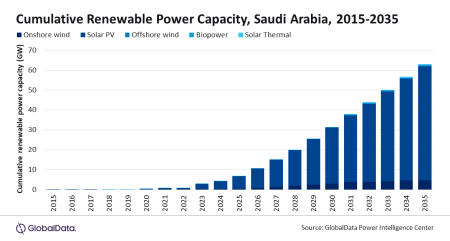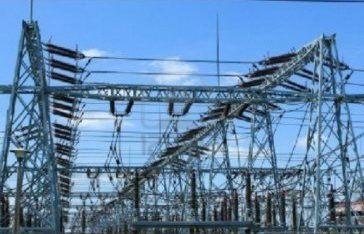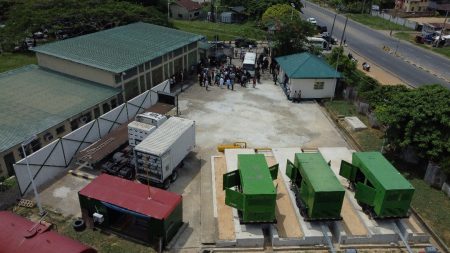 20 January 2014, Lagos – The persistent inadequate gas supply to the various power generating plants nationwide is threatening the plan by the federal government to declare Transitional Electricity Market (TEM) on March 1.
20 January 2014, Lagos – The persistent inadequate gas supply to the various power generating plants nationwide is threatening the plan by the federal government to declare Transitional Electricity Market (TEM) on March 1.
When declared, TEM will make it mandatory for the Nigerian Gas Company (NGC), a subsidiary of the Nigerian National Petroleum Corporation (NNPC), to be sanctioned in the event of failure to deliver on its gas supply commitments to the power producers, in line with the Gas Supply Agreement (GSA) signed in 2013.
With TEM also, any power generating station that fails to deliver on its electricity supply commitment to the national grid in accordance with the Power Purchase Agreements (PPAs) signed with the Nigerian Bulk Electricity Trading (NBET) Plc, otherwise called the Bulk Trader, will also be sanctioned.
Irrespective of the inadequate gas supply to the power generating plants, which is threatening efforts of the federal government to stabilise power supply to homes and industries, the Nigerian Electricity Regulatory Commission (NERC) has expressed optimism that increased generation and distribution of electricity would rise to about 7,000 megawatts (MW) within the year.
THISDAY gathered at the weekend that actionable agreements, which have since been signed but awaiting implementation, pending the declaration of TEM, include Transmission Use of Service Agreements (TUOS); Grid Connection Agreements; Ancillary Services Agreement; Power Purchase Agreements (PPAs); Gas Supply Aggregation Agreements (GSAAs) and Gas Transportation Agreement (GTAs).
The GSA obligates the gas supplier to provide the agreed minimum amount and quality of gas to the power producers.
The agreement also obligates the power producers to pay for gas supplied and provides for penalties for non-delivery of the required gas and non-payment for the gas delivered.
It was gathered that of all the agreements that are awaiting implementation, the GSA poses the greatest threat to the declaration of TEM because of the persistent interruption in gas supply to the power producers.
Investigation revealed that all the gas-fired power stations are currently operating below half of their available capacity because of the inadequacy in gas supply.
The shortage has been blamed on the sabotage of the Escravos-Warri-Lagos Gas Pipeline network by vandals and suspected aggrieved inhabitants of Ogidigben, Ajadiabo, Escravos, Gbaramatu and Ugborodo communities in Warri South West Local Government Area of Delta State.
It was also learnt that Chevron Nigeria Limited, for instance, has not been able to pipe 350 million standard cubic feet of gas per day additional commitment because of the vandalism of the Escravos pipeline network.
One of the new owners of the recently-privatised generating plants told THISDAY that if TEM were declared, NGC would pay huge penalties for failure to meet its gas supply obligations to the power producers.
“It will be difficult for TEM to take off because of the precarious situation of gas supply. There is a shortfall of about one billion standard cubic feet of gas per day to run the available capacity in the power stations and this implies that NGC will pay huge penalties for not meeting its obligations when TEM takes off,” he said.
But the Group Executive Director (GED) in charge of Gas and Power at the NNPC, Dr. David Ige, told THISDAY at the weekend that gas suppliers would not be sanctioned if the disruption in supply were caused by sabotage.
“You cannot blame anybody when it is not the supplier’s fault. When there is disruption caused by sabotage, the supplier will declare force majeure and once the buyer is satisfied that it is not the supplier’s fault, nobody will be sanctioned,” he said.
Ige said all the GSAs signed by the NNPC and the power producers made provisions for how to deal with the issues of vandalism and sabotage.
“We have Gas Supply Agreements with Egbin Power Station and others and the gas supply template has provisions for such issues,” he added.
THISDAY however gathered that Egbin Power Station, which delivers 1,080mw when gas is available, was delivering 540 megawatts at the weekend because of the inadequate gas supply to fire the five units that are currently available.
The shortage of gas supply had forced the generation to drop to 300 megawatts in December 2013 before it ramped up to 540mw.
Under TEM that will take off in March, the PPAs signed by NBET and the power producers obligate the producers to deliver agreed electricity capacity and energy to the national grid.
The agreements also obligate NBET to pay for the capacity and the energy delivered while penalties exist for non-delivery by the power producers and non-payment by NBET.
However, notwithstanding the challenges being experienced in power generation, NERC said at the weekend that it was anticipating increased generation and distribution of electricity to about 7,000mw within the year.
It added that the expected increment was hinged on the gradual coming on stream of power projects executed under the National Integrated Power Projects (NIPPs).
Besides, it also explained that it has set its power generation benchmark at 20,000mw by 2017.
A statement yesterday in Abuja quoted NERC Chairman, Dr. Sam Amadi, as giving the figures at a presentation at the weekend in London, where he also called for an early end to the debate over the Petroleum Industry Bill (PIB), which is currently before the National Assembly.
He equally noted that an early passage of the PIB remained critical to further growth of Nigeria’s power sector.
Amadi had during his presentation at the “Nigeria Dialogue Gala Roundtable,” in Chatham House said: “Power supply is expected to hit 7,000mw by the end of this year as increased capacities are expected from the NIPPs coming on stream, while generation benchmark is set at 20,000mw by 2017.”
He spoke as the lead speaker at the event organised by the Nigeria Dialogue, an organisation of young Nigerians in Diaspora, saying the 7,000mw supply target set for 2013 could not be realised because of inadequate supply of gas to power, which the PIB could help reverse.
“PIB is critical to move forward on gas to power; the law should be passed as soon as possible, although the debate over it is big but we want the matter to be resolved in a way that makes gas to power commercially viable and bankable.
“At the end of 2013, we had expected to hit 7,000mw and that would have been possible if there were enough gas to fire the plants as the NIPPS come on board.
“By end of 2014, we will definitely cross 7,000mw because of the NIPPs; if you put all the capacity together, you will get over 4,000, and the existing 4,000mw. The benchmark is that by 2017, we expect that the Nigeria electricity market will have over 20,000mw trading then,” Amadi said.
He also told the audience that the privatisation of the Nigerian power sector was not a sweetheart deal, warning that government can withdraw non-performing licences from defaulting investors and pass the shares, through bidding, to people who have the capacity to run the network.
The Chief Operations Officer of the Nigeria Dialogue, Bankole Eniola, said the initiative was set up with a view to help proffer solutions to Nigeria’s challenge in order for the nation to attain quick development.
– Ejiofor Alike and Chineme Okafor, This Day



